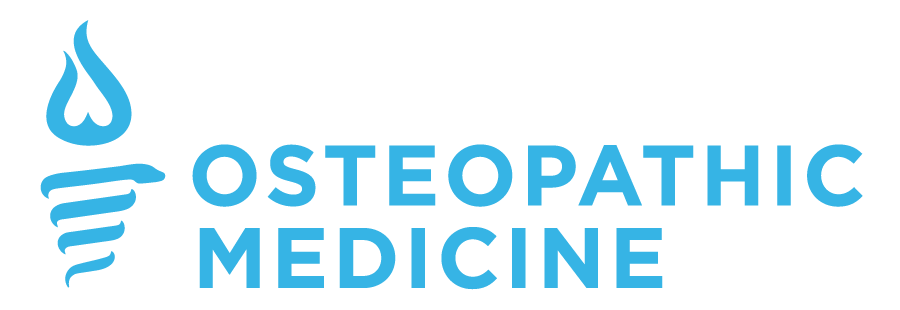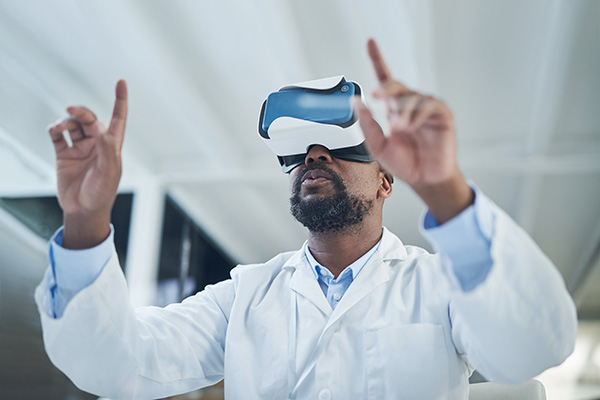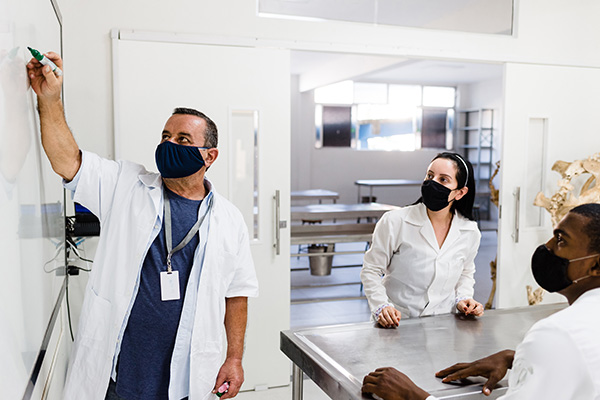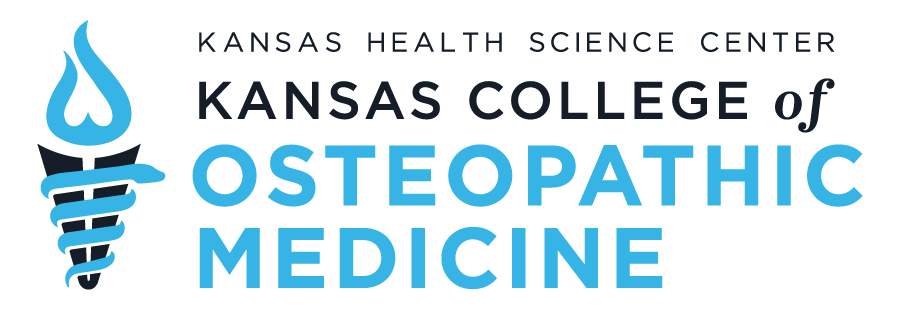Curriculum Designed for Modern Medicine
The curriculum at KansasCOM has been designed to ensure that you will be prepared for professional clinical practice and will garner skill sets in leadership that can be applied in a variety of health care roles. Our curriculum focuses on several key concepts in modern medicine, utilizing cutting–edge technology and models in adult learning theory to facilitate student success.
The KansasCOM Experience
Our program is based in the patient presentation or case-based curricular model, meaning you will learn primarily through studying clinically based cases that highlight the symptoms presented by the patient.
The end goal of the case-based model is to arrive at a differential diagnosis efficiently and effectively. You will work with faculty who have scientific expertise to understand the underlying reasons for the medical issue, as well as clinical experts who will explain the clinical presentation and treatment of the issue.
Years One and Two: Patient Presentation and Case-Based Curriculum
The first two years of the academic program are organized in the patient presentation or case-based model, taught collaboratively by both basic scientists and practicing clinical physicians to ensure students understand both the science and the clinical skills needed to analyze problems and develop solutions. In addition, what you learn these first two years of study will be the foundation from which you successfully navigate required licensing exams.
This learning is reinforced by several key concepts emphasized in the first two years, which will enhance and solidify your knowledge and understanding.
- Early clinical experiences
These include clinical practice, standardized patient encounters, human patient simulation, virtual reality, and the use of artificial intelligence. - A focus on serving underserved communities
Being able to serve the underserved is not only a professional privilege but also a professional obligation. At KansasCOM, we take very seriously our mission that calls us to serve. - An emphasis on physician health and wellness
Physicians who embrace and practice wellness on a regular basis are more likely to avoid the burnout often associated with health care professions. At KansasCOM, we are committed to instilling the key concept of health and wellness in each of our students.
Years Three and Four: Clinical Clerkship and Advanced Clinical Training
In your third and fourth years, you will take the art and science of being a physician that you learned in years one and two into practice. You will be matched with a clinical clerkship preceptor, at a hospital or clinic, where you will continue work with real patients. During this process, you will receive advanced clinical training through both inpatient and outpatient clerkships in a wide range of medical settings.
What you learn during years three and four will be reinforced and enhanced by several key opportunities:
- Focus on primary care and a variety of specialties
The sky is the limit at KansasCOM in terms of your future. The clinical years are a test run to help you better understand what areas of medicine you might like to invest in. - Experiencing clinical success in rural and underserved communities
Research supports the fact that students exposed to rural and underserved populations, with training in diversity, equity, and inclusion, make better physicians. - Providing a breadth and depth of experiences that enhance learning
Applying what you learn in your didactic coursework is key to becoming a great physician. You will experience a wide range of clinical realities and experiences that reinforce retention of course content and clinical skills.
Board Exam Preparation
Joel Dickerman, DO, both served as vice presidents for the National Board of Osteopathic Medical Examiners (NBOME) and several KansasCOM faculty have participated in item development for the NBOME. Their experience and expertise have provided insight into the most effective means to prepare students for the NBOME COMLEX USA examination series. Students will be provided multiple methods of study to best prepare students for these examinations.
Specialized Modules Developed with Medical Intelligence 10 (MI10)
A key benefit of our DO program is that it includes modules created in collaboration with MI10 to support the development of future leaders in medicine. These courses are incorporated across the degree program experience and will explore a range of topics from establishing a virtual presence to understanding emerging technologies and how they can be applied in clinical practice.
As the industry of health care continues to evolve, KansasCOM is committed to remaining at the forefront of innovation to improve patient care locally and nationally. Listed below are the modules that are threaded into the DO program curriculum:
- Design Innovation, and Healthcare Entrepreneurship
- Digital Health and Monitoring Technology
- Emerging Technologies and New Sciences
- Health Humanities and Healthcare Ethics
- Health Informatics and Artificial Intelligence
- Health Systems and Global Health
- Innovative Education and Training Transformation
- Medical Business and Healthcare Economics
- Precision Medicine and Population Health
- Professional Leadership and Virtual Presence
- Transdisciplinary Collaboration and Diversity Principles





